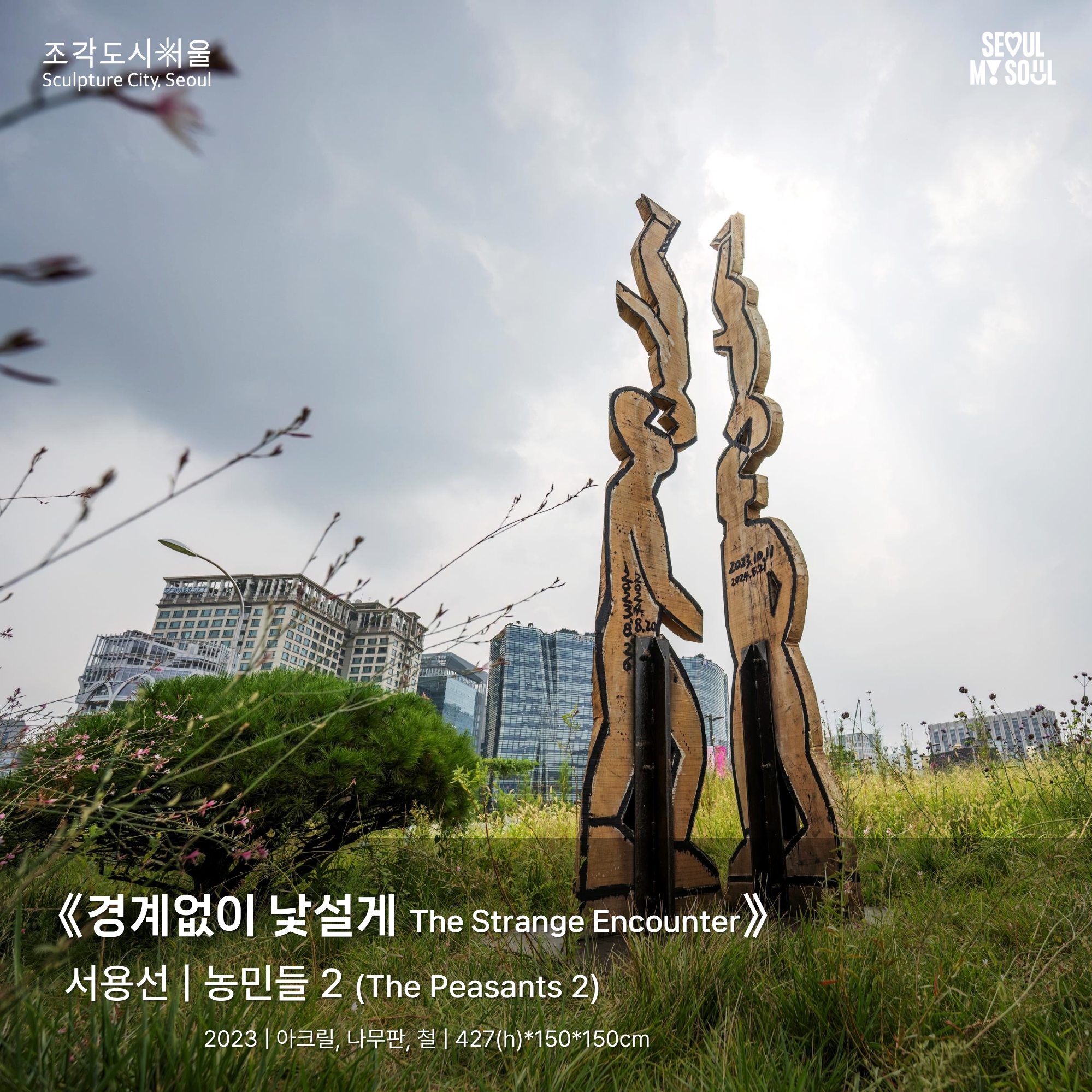

<농민들 1>과 <농민들 2>는 동학농민운동과 3.1 운동 정신을 이은 ‘암태도소작쟁의’(1923-1924)에서 일제 강점기 지주들로부터 착취당해왔던 소작인들의 삶에 영감을 받아 제작되었다. 서용선은 드러나지 않았던 그들의 실존적 상황을 상징적으로 보여주는데, 거침없는 필채와 강렬한 색감의 회화가 주 매체인 작가에게 평면적으로 표현된 이 입체작품은 결국 앞이나 뒤 중 한 면밖에 볼 수 없는 역설적인 인간의 삶과 서사를 나타낸다. 사회적 현실에서 겪는 인간의 존재론적 고민을 담은 그의 작품은 시대를 초월하여 현재에도 여전히 유효한 질문을 던진다.
서용선은(b. 1951)은 서울대학교 미술대학 서양화과와 동대학원을 졸업하고, 2009년까지 서울대학교 미술대학 서양화과 교수로 재직했다. 원앤제이갤러리(2024), 아트선재센터(2023, 2022), 아트센터 화이트블럭(2019), 국립아시아문화전당(2018), 김종영미술관(2016), 아르코미술관(2016), 금호미술관(2015), 조선일보미술관(2014), 국립현대미술관(2009) 외 국내외 다수의 기관에서 개인전을 개최하였으며, 페이스갤러리, 아르코미술관, 서울시립미술관, 아트선재센터, 2020부산비엔날레, 전북도립미술관, 뮤지엄산, 경남도립미술관 외 국내외 기관에서 다수의 단체전에 참여했다.
The Peasants series were inspired by the farmer’s uprising in Amtae-do (1923-1924), a movement led by tenant farmers who were exploited by landowners during the Japanese occupation of Korea. The uprising inherited the spirits of the Donghak Peasant Revolution and the March 1st Protests. Suh, whose main medium is vibrant paint and lively brushstrokes, depicts the shrouded existence of the peasants in a symbolic style. This three-dimensional work only depicts one side, either the front or the back, of the peasant, representing the paradoxical narrative of human life. These timeless sculptures capture the existential concerns humans face in reality and continue to raise questions that are still relevant today.
Suh Yongsun (b. 1951) has a BFA and MFA in Painting from Seoul National University. He was a professor at Seoul National University’s College of Fine Arts until 2009. He has held multiple solo exhibitions at local and international venues such as One and J. Gallery (2024), Art Sonje Center (2023, 2022), Art Center White Block (2019), Asia Culture Center (2018), Kim Chong Yung Museum (2016), Arko Art Center (2016), Kumho Museum of Art (2015), Chosun Ilbo Art Gallery (2014), and the National Museum of Modern and Contemporary Art (2009). He has also participated in multiple group exhibitions at venues such as Pace Gallery, Arko Art Center, Seoul Museum of Art, Art Sonje Center, Busan Biennale 2020, Jeonbuk Museum of Art, Museum SAN, and Gyeongnam Art Museum.